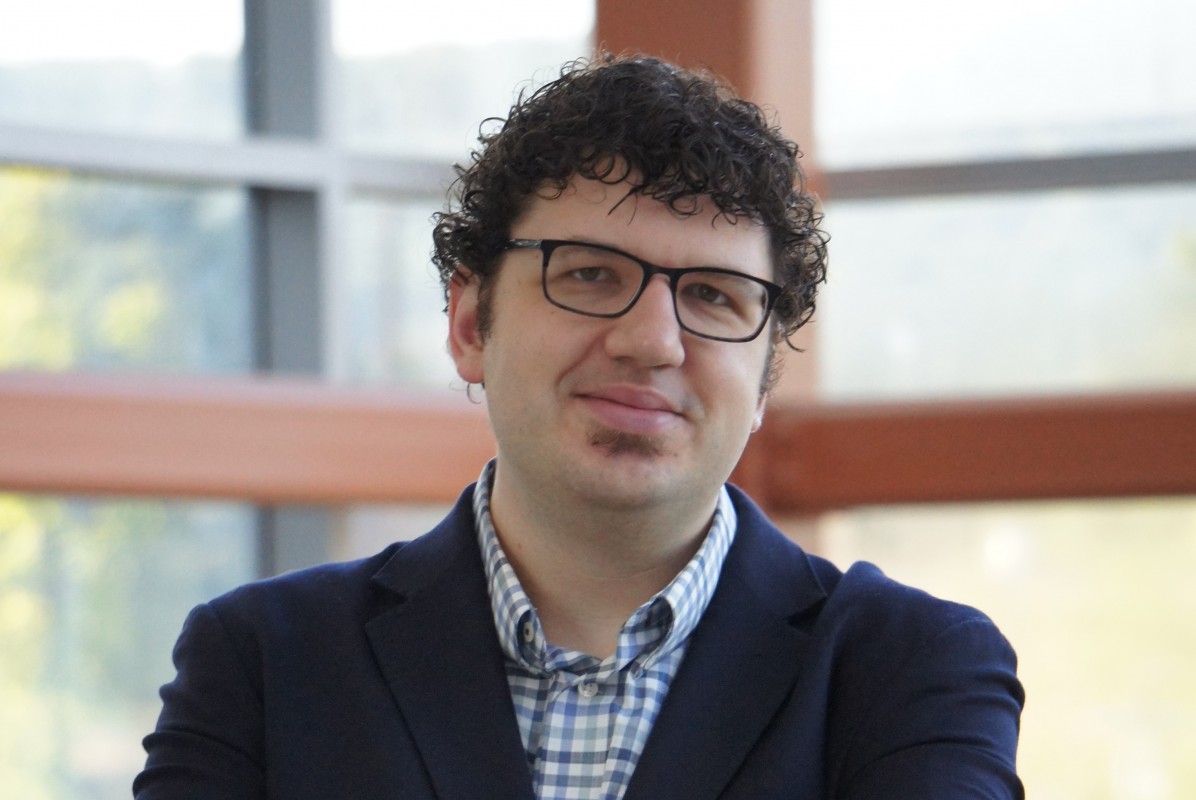Light of understanding: John Swierk receives NSF CAREER Award in chemistry

Set into motion by light, photoredox reactions forge new chemical bonds that are difficult to create with traditional laboratory techniques. Used in the synthesis of pharmaceuticals, this process can potentially lead to the creation of new drugs.
There’s only one problem: No one knows exactly how photoredox reactions work.
Enter Binghamton University Assistant Professor of Chemistry John Swierk, who recently received a National Science Foundation (NSF) CAREER Award for $630,000 to answer this question. Swierk’s lab focuses on the intersection of light and chemistry, and particularly how light can drive chemical reactions.
“There has been very little work on actually understanding what happens on an atomic or molecular level when the reaction absorbs light — what are the steps that you go through to form the bond,” he explained. “On the one hand, this chemistry works and it’s being used in industry. On the other hand, we don’t understand how it’s working.”
The pharmaceutical industry is particularly interested in photoredox reactions, which have grown in importance over the past decade or so. There are other potential applications, too; this type of catalysis can, in principle, be used for any kind of small molecule synthesis, such as in the energy sector, Swierk said.
Understanding how these reactions work is more than an academic exercise. Ultimately, learning more about how the process works may lead to faster reaction rates, the development of new products and increased product yields.
Educational focus
Swierk’s project also has an educational focus: aiding in the transition of community college students to the academic life of a four-year University. Swierk teaches inorganic chemistry, and his class is one of the first that transfer students in chemistry take at Binghamton.
Transfer students can face a difficult adjustment period, he acknowledged. Community college classes are often small, for example, and students may feel overwhelmed in a large lecture hall with much less individual attention. There are other challenges, too: from learning your way around a larger and more complex campus, to building connections with peers who have been here since their first year.
“These obstacles can make it difficult for transfer students to be successful and persist in STEM degrees. That’s particularly problematic because students from marginalized groups are more likely to come in as part of the transfer pool,” he explained.
Plans include open houses with the community colleges that typically send their students to Binghamton. This will allow students to receive advising before they arrive, helping them identify the best strategies for success.
Swierk will lead a department-level orientation that will help transfer students interested in chemistry navigate the program. He also will teach a First Year Experience (University 103) class in the fall aimed at transfer students, particularly those coming from community colleges.
Many community college students must support themselves while they pursue their education, which can often put research and lab experiences out of reach. Swierk plans to provide paid research opportunities for community college students motivated to pursue a career in chemistry, so they don’t have to choose between opportunities in the lab and paying their bills.
“We’re trying to do a better job of creating a more equitable, inclusive environment that can support student success,” he said.

